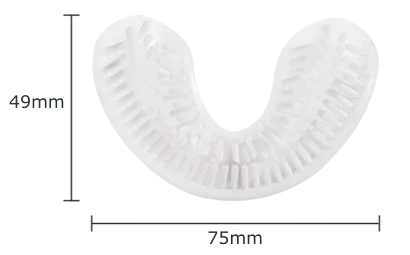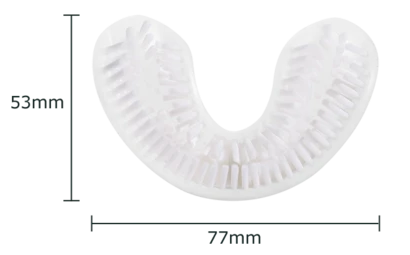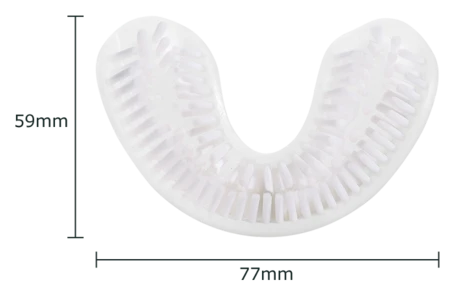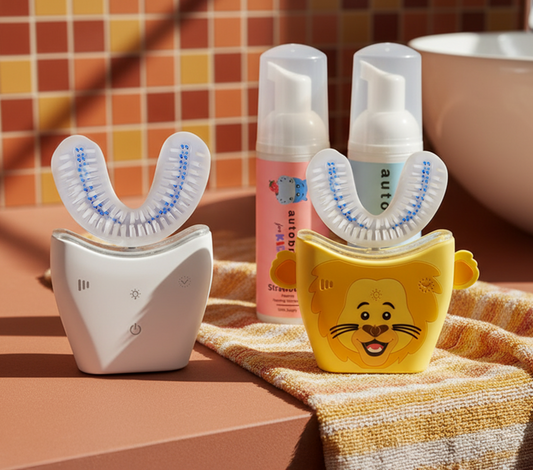
Exploring the World of Oral Probiotics: Do They Work?
In the ever-evolving landscape of health and wellness, the term "probiotics" has become quite the buzzword. While most of us are familiar with probiotics in the context of gut health, there's another dimension to this microbial marvel – oral probiotics. These tiny, beneficial bacteria are garnering attention for their potential to promote oral health, but do they work? In this blog post, we'll delve into the fascinating world of oral probiotics, exploring what they are, their efficacy, how long it takes for them to work, and why they might be a beneficial addition to a child's oral care routine.
What Are Oral Probiotics?
To understand oral probiotics, let's start by revisiting the concept of probiotics. Probiotics are live microorganisms, primarily bacteria and sometimes yeast, that offer health benefits when consumed in adequate amounts. They are often associated with promoting a healthy gut, but the mouth is also home to a diverse microbial community. Oral probiotics, then, are specifically designed to target and positively influence this oral microbiome.
The oral microbiome consists of various microorganisms that inhabit the mouth, including bacteria, viruses, and fungi. While some of these microbes are beneficial and play a vital role in maintaining oral health, others can contribute to issues such as tooth decay, gum disease, and bad breath. Oral probiotics aim to tip the balance in favor of the beneficial bacteria, supporting a healthier oral environment.

Do Oral Probiotics Work?
The effectiveness of oral probiotics is a topic of ongoing research and discussion. Like their counterparts for gut health, oral probiotics are intended to introduce beneficial bacteria into the mouth. These beneficial bacteria are thought to compete with harmful microbes for resources and help maintain a balanced microbial community.
Several studies suggest that oral probiotics can:
- Reduce Bad Breath: Some strains of beneficial bacteria found in oral probiotics are believed to combat the bacteria responsible for bad breath, known as halitosis.
- Prevent Tooth Decay: Certain strains may inhibit the growth of cavity-causing bacteria, potentially reducing the risk of tooth decay.
- Support Gum Health: Oral probiotics might help reduce inflammation in the gums and promote overall gum health.
- Balance the Oral Microbiome: By introducing beneficial bacteria, oral probiotics aim to restore balance to the oral microbiome, which can be disrupted by factors like diet, medications, and oral hygiene habits.
However, it's important to note that the effectiveness of oral probiotics can vary depending on several factors, including the specific strains used, the individual's oral health, and their overall lifestyle. More research is needed to establish clear guidelines and recommendations for their use.
How Long Does It Take for Oral Probiotics to Work?
The time it takes for oral probiotics to yield noticeable results can vary from person to person. Several factors can influence the timeline, including the individual's oral health, the specific probiotic strains used, and their overall oral hygiene practices.
In some cases, individuals may experience improvements in oral health relatively quickly, within a matter of weeks. For instance, those dealing with persistent bad breath may notice a reduction in odor as beneficial bacteria establish themselves in the oral microbiome.
However, for more complex oral health issues, such as gum disease or chronic inflammation, the process may take longer. It's crucial to maintain consistent use of oral probiotics and follow a comprehensive oral care routine to maximize their potential benefits.

Why Kids Should Take Oral Probiotics
While oral probiotics are often associated with adult oral care, they can also be beneficial for children. Here are some reasons why parents may consider incorporating oral probiotics into their child's oral health routine:
- Promoting Early Oral Health: Introducing beneficial bacteria into a child's oral microbiome can help establish a healthy balance from a young age, potentially reducing the risk of dental issues later in life.
- Preventing Tooth Decay: Oral probiotics may assist in inhibiting cavity-causing bacteria, contributing to a lower risk of tooth decay in children.
- Addressing Bad Habits: Some children may have a habit of mouth breathing, thumb-sucking, or using pacifiers, which can disrupt the oral microbiome. Oral probiotics may help mitigate the impact of these habits on oral health.
- Supporting Overall Wellness: A healthy oral microbiome is connected to overall health. By maintaining a balanced oral microbiome through oral probiotics, children may experience benefits beyond just oral health.

Conclusion
Oral probiotics represent a fascinating frontier in the world of health and wellness. While they hold promise for promoting oral health and balance within the oral microbiome, their effectiveness is still a subject of ongoing research. Whether you're considering oral probiotics for yourself or your children, it's essential to consult with a healthcare professional or dentist to determine the best approach for your specific needs.
As science continues to unlock the mysteries of oral probiotics, it's clear that they have the potential to play a valuable role in oral care. However, like any health supplement, they should be used in conjunction with a comprehensive oral hygiene routine, including regular dental check-ups, to ensure the best possible oral health outcomes.












